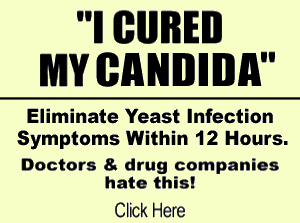Low Iron and Yeast Infection
Yeast infections are brought about by a yeast-like fungus known as Candida albicans, that is usually kept under control by the system’s good bacteria. Only when it expands out of hand will it really develop into disease.
So when you think about it this good bacteria versus bad bacteria ‘harmony’ is essential. However there are lots of stuff that can easily disturb this balance. Two of them are a low immune system and friendly bacteria destruction.
Among the list of stuff that will affect the immune system is anemia which takes place due to iron deficiency. Therefore low iron, which ends up in anemia, could jeopardize your immune system and so disturb the delicate balance. This could subsequently cause an over growing of Candida resulting in a yeast infection.
Under balanced conditions, with maximum levels of iron, your helpful microorganisms operate efficiently. However, so can the Candida, with the exception that the Candida requires ‘free’ iron to overrun the body’s cells. And also, with a healthy body, a protein known as ‘Lactoferrin’ adheres to the iron, so avoiding the Candida from growing.
Nevertheless, people who have anemia have low levels of Lactoferrin. And considering they’ve got low iron, their good bacteria are less reliable, too. Therefore, the balance is more distressed, still permitting the Candida to multiply as well as scatter.
Therefore, should you suffer from low iron and you have a yeast infection perhaps the two could be related. For your personal health and wellness, at any rate,you must get your iron back to maximum levels. And the best way is by means of diet.
Excellent options for iron are; liver, red meat, fish, poultry, eggs, whole grains, dark green leaf vegetables, peas, beans, potatoes, rice, as well as peanuts. However, make sure that the food you eat is actually sugar-free, mainly because sugar is what Candida feeds off of.
You might think about using iron supplements however it is important to check with a medical expert prior to doing this. Another help is vitamin C, which assists to soak up the iron. But once more, speak with your physician first to ensure that whatever you do is proper for your personal case, including your diet.
